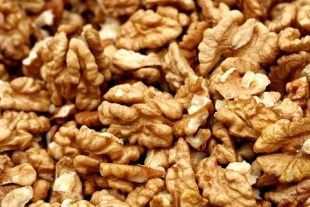What is melatonin and how does it work?
Melatonin is a natural hormone released from our brains, as well as by the skin, intestines, bones and immune systems. Melatonin production in our brains is set according to our body clocks (circadian rhythms), with the highest levels seen at night (two to four hours after we go to sleep) and the lowest levels corresponding to maximal daylight hours (in the middle of the day).
When our eyes detect light, especially of short-wavelength light, such as that emanating from TV screens or fluorescent bulbs, the production of melatonin is suppressed. Longer-wavelength light (from the red or amber spectrum) is less inhibitory, which is why we find it easier to fall asleep by the glow of a fire or candlelight.
What are the benefits of melatonin?
While this cycling of melatonin is important for the regulation of sleep cycles and aligning other parts of our circadian rhythms, melatonin also has a number of important, independent effects on our daytime health and aging:
- Melatonin is an antioxidant, one of the few that is capable of reaching deep inside our cells into the mitochondria, the main source of free radicals inside our cells. By preventing damage to our mitochondria, melatonin may modify age-related loss of mitochondrial function, perhaps even affecting the aging process.
- Melatonin can also prevent damage caused by free radicals in other inaccessible places that normally exclude conventional antioxidants. For example, melatonin can penetrate our brains, where it may help to combat free radicals that might otherwise contribute to our developing Alzheimer’s and Parkinson’s disease and other forms of cognitive decline.
- Moreover, melatonin may have important beneficial effects on our aging immune systems. A number of studies have suggested that low melatonin levels are associated with the development of some cancers, particularly in individuals whose circadian pattern is disrupted like night-shift workers.
- Melatonin also interacts with and regulates the responses of our other hormonal signalling systems. For example, melatonin acts to reduce the effects of excessive stress hormones, such as cortisol, on our bodies, and sends signals through our estrogen receptors that may modify hormone sensitive diseases such as breast cancer. In some women, melatonin supplementation may also improve thyroid function.
Melatonin levels can be modified by a number of factors other than light, including exercise, alcohol and our diet. To make matters worse, the production of melatonin generally declines with age. In fact, some elderly individuals show little or no nocturnal increase in melatonin production. Obviously, this makes getting to sleep a problem, but it also may impact on their health and longevity.
Last Reviewed 02/Mar/2014
Dr Merlin Thomas
Latest posts by Dr Merlin Thomas (see all)
- How to increase DHEA levels - 28/09/17
- Testosterone supplement benefits & risks - 11/07/17
- Health effects of tea & coffee - 10/07/17
